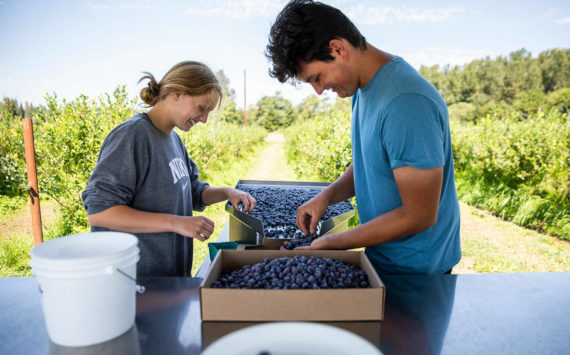Controversial sex ed bill OK’d
Public school students will soon have a greater understanding of their sexuality, sexual abuse and the importance of consent under a new law passed by state legislators, but not all are happy about it.
Senate Bill 5395 requires public schools to give children in kindergarten through 12th grade a comprehensive sexual education. The curriculum must follow certain requirements, including encouraging healthy relationships, teaching students about sexual violence, educating them on consent and being inclusive of all students.
Opponents expressed concern it would put children’s innocence at risk. The amount of graphic content that may be associated with the subject has upset some parents who believe it’s their responsibility to educate their children about sexual matters. “I’m not sure why we’re rushing to remove the innocence from our youth,” Rep. Mike Steele, R-Chelan, said at the earlier debate. “We put so much on them already. … I don’t know why we think it’s appropriate to put more, to put such weight upon their backs at such young ages.”
SB 5395 was passed by the House March 4 56-40. The Senate concurred with the House’s amendments and passed the bill March 7 27-21. The bill was a straight party-line vote in both chambers, with Republicans opposed.
Supporters claimed that a sexual ed curriculum would give students a better understanding of sexual health, which will allow them to make better choices. Some parents and opponents say the curriculum may confuse children, particularly when gender identity issues are discussed.
Supporters also argue the curriculum would give children the skills they need to identify sexual violence and how to respond to it, which could help them avoid situations involving abuse or assault.
“I stand here as a victim,” Rep. Debra Lekanoff, D-Bow, said at an earlier House debate. “If I had known then what I know now, I would not be living through the historical trauma that I have to live through everyday.”
No such thing as a free bag
Consumers will need to remember to bring their own reusable shopping bags if they want to avoid the fee that a new law will put on plastic bags. Senate Bill 5323 will ban retailers and grocers from handing out single-use plastic bags for free. Shoppers will, instead, be offered a reusable carry-out bag at checkout for an 8-cent fee.
“We have been working to deal with the plastic blob in the Pacific Ocean for a decade now,” said Rep. Gael Tarleton, D-Seattle, chair of the House Finance Committee. “There is no perfect tax policy to figure out how to induce change behavior to stop using plastic bags. … I really hope that we can convene a solution to how we combine tax policy with the environmental policies to achieve the objective of banning plastic bags.” After passing in the House last week, the bill was heard a final time in the Senate March 9, and now heads to the governor’s desk.
Timber helped by carbon emission goals
Washington state lawmakers have passed legislation that will align the timber and forestry sector with the state’s carbon emission goals.
The Senate voted 46-3 in favor of passing House Bill 2528, which would recognize the amount of carbon that trees absorb from the atmosphere and allow that amount to be accounted for after the potential implementation of a carbon emission tax. The House passed the measure earlier 95-0.
Cindy Mitchell, senior director of public affairs for Washington Forest Protection Association, said the law will help recognize the role forests, both public and private, play in reducing atmospheric carbon. Mitchell said the state’s 8 million privately owned acres of working forests account for a 12% annual reduction of the state’s carbon emissions.
The bill not only gives the timber and forestry industry a competitive edge against other carbon-emitting industries after implementation of a carbon fee, it would recognize the sector as one that reduces atmospheric carbon. And it directs the state Department of Commerce to promote timber and forestry products.
“There’s a longstanding presumption that timber harvesting and environmental protection are mutually exclusive, but the truth is just the opposite,” said Sen. Kevin Van De Wege, D-Sequim, via written statement. “By aligning timber practices and cycles with the state’s carbon reduction goals, we can boost our rural economies and improve our environmental health at the same time.”
The bill will return to the House for concurrence with amendments made in the Senate before it makes its way to the governor’s desk to be signed into law.
– Information for Legislative briefly is provided by WNPA interns in Olympia.







